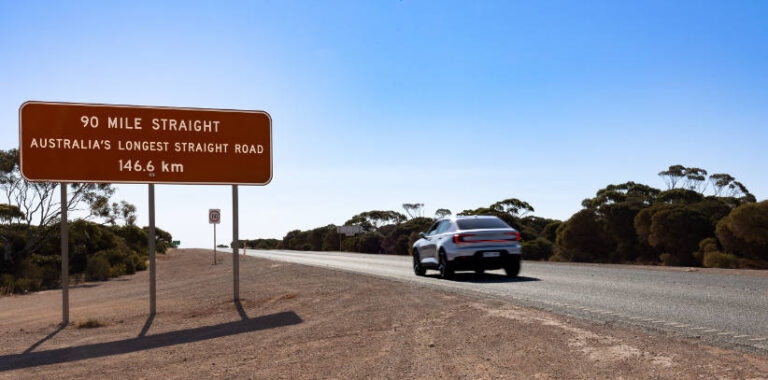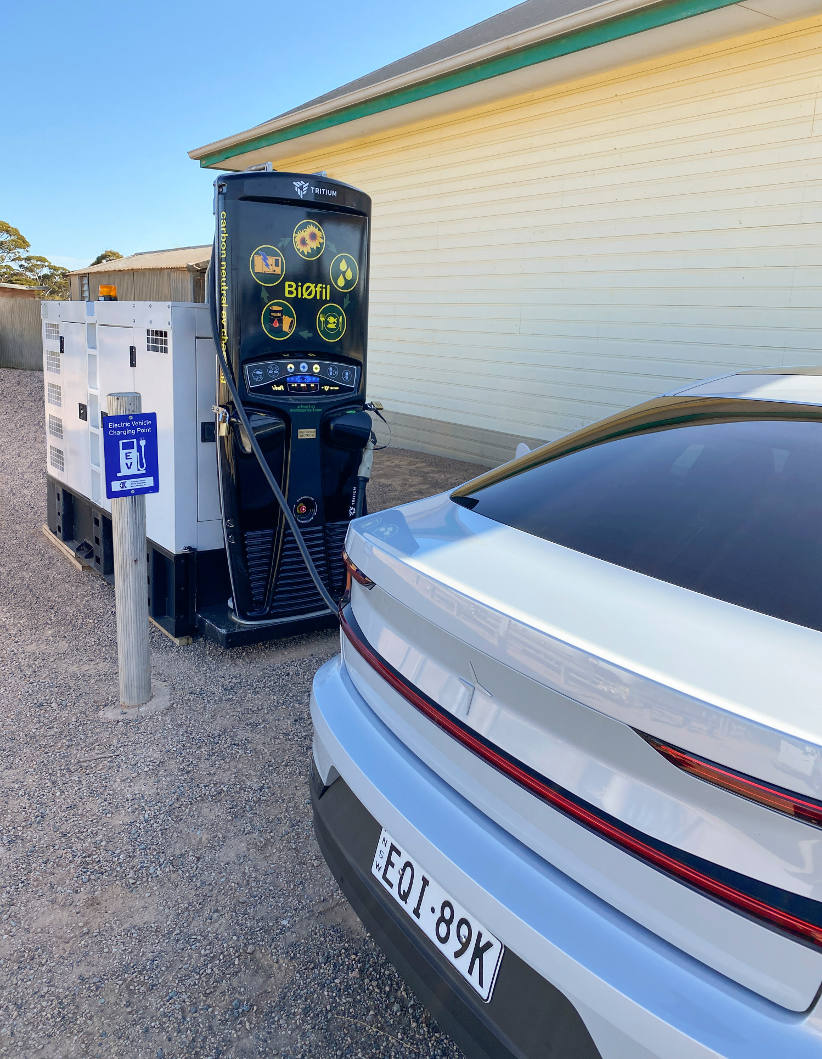Polestar, the premium Swedish electric vehicle brand, is channelling the spirit of past Aussie pioneers by trialling a world-first fast-charging system for electric vehicles on the Australian Nullarbor.
Covering more than 700 kilometres between the West Australian towns of Caiguna and Southern Cross, the all-electric Polestar 2 powered up at the fully off-grid, and self-contained BiØfil fast chargers en-route to Perth. The chargers are entirely powered using waste ‘chip fat’ (vegetable) oil from the Caiguna roadhouse.
The BiØfil fast-charging system is the brainchild of retired engineer, Jon Edwards, who identified that the proposed electric vehicle highway in Western Australia left a gap on the Nullarbor, and with it, the ability to drive an electric vehicle (EV) around Australia.
Connecting Western Australia to South Australia, the Caiguna Roadhouse charging point is positioned 370 km east of Norsemen and 370 km west of the South Australian border. This halfway point offers sustainable charging that effectively plugs the gap, allowing EV owners to traverse the Nullarbor.
BiØfil extracts energy from waste oil using a generator, but is an entirely net-zero exercise, with no incremental impact on the environment. The vegetable oil for the fryers comes from seed crops, such as canola and sunflower, which absorb CO2 and sunlight, and the CO2 produced to power the charge system is the equivalent to CO2 absorbed.
“Polestar is thrilled to share its passion for innovation and sustainability with visionaries like Jon Edwards,” comments Samantha Johnson, managing director of Polestar Australia.
“To turn a waste product into a CO2-neutral charging solution, which connects Australian EV owners from the east with the west, is the sort of ingenuity that has led to so many Australian innovations.”
Jon Edwards, inventor of BiØfil, adds: “The cost of installing an equivalent solar-powered EV fast charger is over five times the cost of building the BiØfil fast charging unit. Solar energy would not have been economically feasible for such a low traffic location, making BiØfil the environmentally friendly interim solution for EVs driving across the Nullarbor right now.”







